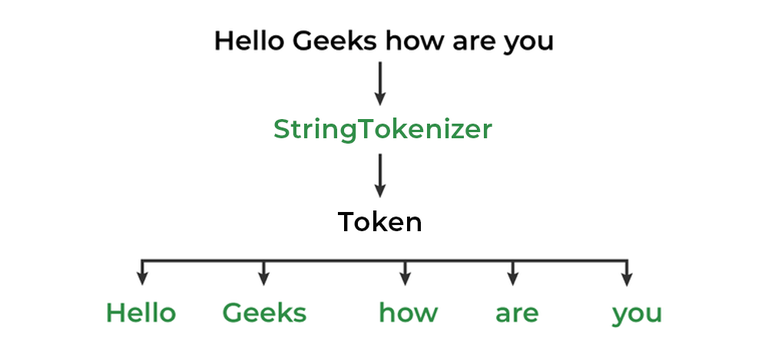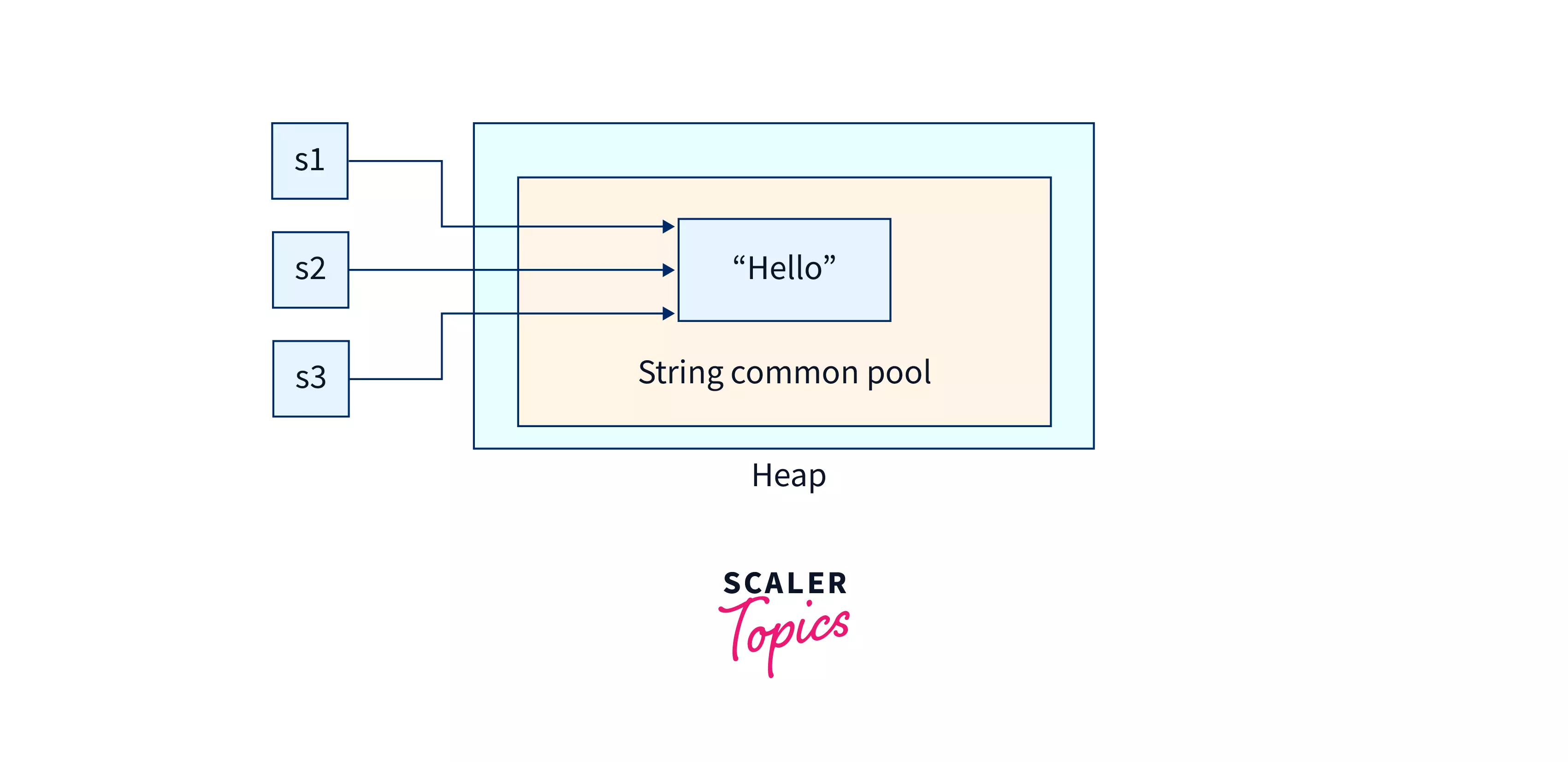Discovering the Advantages of Immutable Strings in Modern Programs Paradigms
In the world of modern-day programming standards, the concept of unalterable strings stands as a keystone of durable software program development. The advantages they provide go past plain ease; they fundamentally modify the method data is dealt with within applications. By taking on immutable strings, designers can make sure enhanced data honesty, improved string security, streamlined debugging processes, increased protection procedures, and efficient performance optimization. These benefits offer as a testament to the profound impact that accepting immutability can carry the reliability and efficiency of software systems.
Boosted Information Integrity

By avoiding the alteration of string objects, immutability removes the danger of unintentional changes to the information they hold. This not just improves the protection of the details however likewise enhances the dependability of the code that depends on these strings.
Immutability also sustains much safer multithreading environments, as simultaneous access to immutable strings does not posture the threat of information corruption via synchronised adjustments. This property streamlines the procedure of handling strings in parallel shows scenarios.
Basically, immutability acts as a safety guard around the information stored within strings, boosting their stability by making sure that when defined, their worths continue to be unchanged throughout the program's implementation.

Improved Thread Safety
Unalterable strings improve the thread security of programs by ensuring that when a string object is developed, its value can not be customized. This property removes the threat of concurrent threads attempting to change the exact same string simultaneously, which can lead to information corruption or inconsistent states in the program - Why are strings immutable in Java?. In a multi-threaded environment, where multiple threads access and manipulate information simultaneously, the immutability of strings gives a level of safety by assuring that the information continues to be unchanged throughout its lifecycle
Streamlined Debugging Processes
Offered the boosted string safety and security assisted in by immutable strings, a considerable benefit develops in the world of simplified debugging processes. Immutable strings, as soon as created, can not be modified, making it much easier to trace the circulation of data and determine the resource of pests in a program. This immutability makes certain that strings continue to be constant throughout the implementation of the program, minimizing the probability of unforeseen adjustments that could cause mistakes.
When debugging with mutable strings, designers often encounter problems where a string's value is changed inadvertently, making it testing to pinpoint the origin reason of a pest. Nevertheless, with immutable strings, the information remains unchanged, allowing developers to concentrate on evaluating the real reasoning of the code rather than finding where and when a string was changed incorrectly.
Furthermore, unalterable strings streamline the debugging process by making it possible for less complicated recreation of pests. Since immutable strings do not transform state, programmers can recreate and research pests more effectively, leading to quicker recognition and resolution of issues within the codebase. This streamlined debugging workflow eventually adds to higher software application high quality and boosted general development performance.

Increased Safety And Security Procedures
Enhancing data security and fortifying system honesty, the use of immutable strings in software applications contributes considerably to enhanced protection procedures. Immutable strings, when created, can not be modified, supplying an important protection versus malicious tampering or unauthorized access. By making sure that delicate information saved in strings continues to be unchanged throughout the program's implementation, the risk of data violations or shot strikes is greatly lowered. Why are strings immutable in Java?. Immutable strings also play a crucial function in stopping common special info safety susceptabilities such as barrier overflows and SQL shot attacks, as attempts to adjust string data at runtime are naturally limited.
Additionally, the immutability of strings improves the predictability of program actions, making it much easier to validate inputs and prevent unforeseen adjustments that might compromise security. This predictability simplifies the process of auditing and validating code, enabling developers to recognize possible safety technicalities a lot more effectively. Generally, integrating unalterable strings into software application growth methods not only enhances the toughness and dependability of applications however also strengthens their strength versus safety hazards.
Effective Efficiency Optimization
Building upon the structure of raised protection steps accomplished with the usage of immutable strings, a key element to think about in software growth is efficient performance optimization. When dealing with mutable strings, procedures like concatenation or substring creation often result in the development of brand-new string things, resulting in memory overhead and raised processing time. Nonetheless, with unalterable strings, these operations can be enhanced to improve efficiency. By allowing strings to remain stable and consistent, unalterable strings facilitate better memory monitoring and caching possibilities, inevitably boosting the overall efficiency of the software program.
Unalterable strings additionally play a critical role in multithreaded settings by promoting string safety. Why are strings immutable in Java?. Since immutable strings can not be changed as soon as developed, they can be shared throughout strings without the risk of unforeseen adjustments, decreasing the need try this for synchronization mechanisms and improving concurrency. In addition, unalterable strings simplify debugging procedures as programmers can trust that a string's value will stay constant throughout the program's implementation, getting rid of possible mistakes triggered by mutable state changes. To conclude, the use of unalterable strings not only boosts protection however also significantly adds to the reliable efficiency optimization of contemporary software program systems.
Final Thought
To conclude, the advantages of using unalterable strings in modern-day programming paradigms can not be overemphasized. Boosted data stability, enhanced string safety and security, simplified debugging processes, enhanced protection measures, and reliable efficiency optimization all add to the overall performance of programs tasks. By integrating immutable strings into programming techniques, programmers can gain from a much more robust and trusted codebase.
Immutability, a key feature of strings in programming languages such as Java and Python, makes certain that as soon as a string item is created, it can not be changed or changed.Unalterable strings enhance the thread safety of programs by guaranteeing that once a string item is created, its value can not be modified. Unalterable strings also play a vital duty in preventing usual safety susceptabilities such as barrier overflows and SQL injection attacks, as attempts to adjust string information at runtime are naturally limited.
By permitting strings to remain stable and continuous, unalterable strings facilitate much better memory monitoring and caching chances, ultimately boosting the total performance of the software application.
Unalterable strings simplify debugging processes as developers can trust that a string's worth will certainly continue to be regular go to these guys throughout the program's execution, removing potential mistakes caused by mutable state modifications.